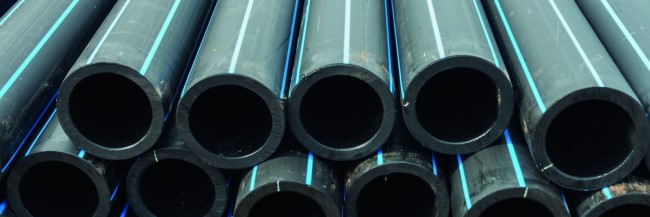PE Pipes
PE pipes are produced in coils up to Ø 125 mm and 12-13 m lengths with diameters of Ø 125 mm and above.
A PE pipe system is a pipe system that is highly resistant to corrosion, can meet axis forces, only needs a limited number of fixings. PE pipe system contains many components that can be produced by different companies.
PE pipes are produced from different types of PE raw materials. The most commonly used PE raw materials are PE 32, PE 80 and PE 100.
There are a certain number of fittings used for PE pipes and produced only by some companies.
Joining methods for PE pipes are: Butt welding, Electrofusion, Flanged connections and Mechanical joints. The most common butt welding method among these joints.
Benefits
It is long-lasting, rustproof, rotting, high strength and corrosion resistant. It is flexible, easy to carry, bent, easy to assemble. High chemical resistance, no smell, no dirt and dirt. It shows resistance against sunlight. It does not leak under pressure. It is more economical than metal material. When it is produced in the form of coils, few joints are made over long distances. Since welding is possible by joining, the network eliminates water loss. It is resistant to impacts. In areas with earthquakes and landslides, it is more durable than metal pipes, thanks to the 350% flexibility of the pipe.
Usage Area
Drinking water systems Irrigation water systems Industrial waste Pool systems It is used in sewage and many liquid transportation works.
Raw materials
The properties of PE (polyethylene) pipes mostly depend on the PE raw material from which the pipes are produced. Pipe manufacturers normally do not add any additives in addition to the PE mixture they receive from raw material suppliers. There are different PE raw materials for PE pipe production (PE 40, PE 63, PE 80, PE 100). Low density PE raw materials such as PE 40 and PE 32 have softer and lower resistance than high density raw materials

